USE CASE: MODERNIZE LEGACY APPLICATIONS
Break free from legacy constraints to innovate faster and grow revenue
Escape the trap of legacy lock-in
Developers have had to build around commercial relational databases such as Oracle, SQL Server, and DB2 that lock them into creating monolithic, legacy applications—which end up being expensive, difficult to scale, and risk security and compliance. Businesses have felt the limitations, with silos hindering agility and limited developer tools transferring from database to database. Today, organizations want to break free from legacy systems to maximize the value of their data and tackle next-gen application development around analytics and AI, which requires diverse data models and open standards that integrate seamlessly with modern data stacks.


Modernize your applications
EDB Postgres® AI (PG AI) enables a single data platform for next-gen application development within a hybrid, customer-controlled environment that meets AI and data sovereignty requirements. Modernize legacy applications with EDB PG AI's hardened, enhanced Postgres on the infrastructure of your choice—in public or private clouds, multi-cloud, on-premises, or as an integrated hardware appliance. Reduce TCO by cutting down legacy licensing and development costs, get enhanced performance, and improve security and compliance outcomes while enabling developers to leverage diverse data models for modern apps.
Multi-model database
Leverage EDB PG AI as a multi-model database with support for relational, document, key-value, time series, and vector data models, bringing analytics and AI closer to core, transactional data.
Flexible, developer-friendly features
Automate database deployment and management while ensuring high-quality execution, so developers can focus on building next-gen applications and adopting modern tools and technologies. Developers can seamlessly integrate EDB-enhanced Postgres extensions with other modern data stack components to build next-gen applications.
Migration tools
Easily migrate with automatic migration assessments, guidelines, and recommendations for common migration use cases. Use an AI Copilot to support the migration progress within your own environment for complete sovereignty.
Focus your time on updating existing and building new applications with the power of Postgres to fuel continuous innovation.
Maximize ROI
Achieve enterprise-grade security in a sovereign, cost-effective environment that reduces TCO up to 80% versus legacy systems.
Support next-gen requirements
Break up monolithic applications while expanding deployment options, adopting technology compatible with modern data stacks, and accelerating AI and analytics application development with multi-model support – all with a unified platform.
Improve developer agility
Quickly adapt to changing market trends and get to market faster while EDB PG AI simplifies the management of hundreds of database clusters and enables up to 99.999% availability.
Minimize Tier 1 application impacts
Reduce application rewrites up to 95% and eliminate disruptions when migrating from legacy systems.
EDB Postgres AI enables legacy application modernization
Enable simple migration from legacy databases like Oracle to open, flexible, enterprise-grade Postgres, as EDB automates the complex tasks of schema and data conversions to reduce rewrites up to 95%. With a migration portal with AI-driven assistance, enable migrations in days (versus weeks or months), minimize downtime, and reduce TCO up to 80%.
Related products and resources
EDB Postgres AI
A modern Postgres data platform for powering mission-critical workloads from edge to core.
Oracle Migration to Postgres
An end-to-end methodology to achieve your business goals.
The USDA Forest Service modernizes its tech stack
Customer success story about migrating from Oracle to Postgres.
Legacy applications are systems based on outdated commercial database technology but may still be crucial to day-to-day operations. They are often monolithic, meaning multiple components are combined into a single application.
Modern applications are those that use cloud-native technologies, like containers, and developer best practices. Modern applications are built to be agile and scalable to support the fast-paced nature of business today.
Modernizing legacy applications offers a way for businesses to keep their mission-critical operations running while enabling the advantages of newer platforms, tools, and technologies. By modernizing their legacy applications with EDB Postgres AI, organizations can seamlessly integrate with other modern technologies, leverage flexible, developer-friendly features, and align with the most up-to-date industry best practices.
Multi-model databases can store and process different data models. Postgres, through its extensions, is a multi-model database because it supports relational, key-value, document, and vector data.
Open standard technology can be used by anyone. This allows organizations to choose solutions based on specific challenges, rather than being locked into one company’s software or hardware. Open source helps reduce TCO since there are no licensing fees, lower the barriers for innovation, and increase interoperability with other tools.
Some key technologies used in application modernization are:
- Hybrid deployments: Some organizations can’t jump from traditional on-premises systems to the cloud due to security and compliance concerns. Modern applications can be built on top of the infrastructure that best fits the organization’s use case.
- Containers and microservices: Containers and microservices allows organizations to break down monoliths, which avoids bottlenecks of a single, central system, helping them develop quicker and more efficiently.
- Automation tools: Developers today need to quickly adapt to changing market trends. It’s increasingly important that modern applications are backed by platforms that streamline and automate operational tasks so that teams can sustain these apps at scale.
